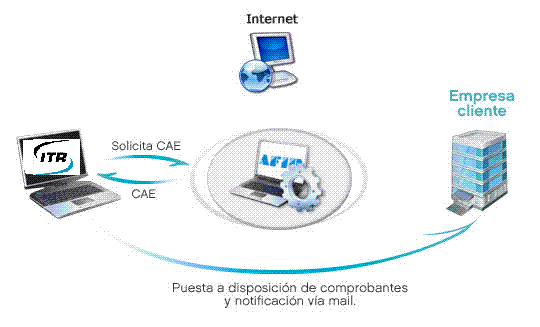Electronic Invoicing Regulation
Argentina is one of the Latin countries that put electronic invoicing into practice. Based on Government rules and regulations, there are many differences between eFactura and for instance Brazils Nf-e (Nota Fiscal Eletronica).
The law in Argentina obliges every company that deals with VAT related invoices to generate these documents in the electronically:
Invoices or equivalent documents class A
Credit notes and debit notes class A
Companies have the option to create the electronic version of the documents below:
Invoices or equivalent documents class B
Credit notes and debit notes class B
This fiscal program has started in 2006, and it it took the Government a great deal of time and effort to make it mandatory. The number of commercial channels and communication methods were other aspects that made the implementation take so long. Moreover, the implementation proves to be a slow growing trend as the level of validation over the XML file sent to AFIP is not high.
In order to issue an electronic invoice (eFactura), the companies must request a digital certification called Fiscal Key. Using this fiscal key, the company is an electronic issuer. Then, the company will request authorization to issue each separate invoice. This authorization is requested to AFIP (Administracion Federal de Ingresos Publicos), the Government Tax Entity. An electronic certification number called CAE proves that the authorization is official. Without the CAE number applied to the invoice, it is not possible to release invoices to customers.
This CAE number can be gathered in two ways:
** Normal: the communication method does not matter, every invoice should have one
** Anticipated: the company can ask for a certain number of CAE numbers according to its wish, for 15 days. After this period, the company has to file a report on how many of those numbers were really used. Optionally,they can make a request for more.
Another determining aspect when configuring a company s scenario in eFactura is the regime. A regime determines the tax contribution model that applies to the company.
Two major ones are:
R.E.C.E. Regime de Emission de Comprobantes Electronicos – This is the most adequate model for large contributors. It is based on web services, with no limits
R.E.C.L. Regime de Emission de Comprobantes en Linea – This model is very adequate for companies with no more than 100 invoices per month.
Gestion-Ventas - Factura Electronica
Tango Ventas gives you the opportunity to comply with regulations, issuing electronic invoices through direct communication with webservices AFIP, no extra costs
Electronic Invoicing TANGO Ventas.
 >
>Lisence Form

Demo

ITR Oficial Service Hasar / Epson / samsung / Sam4S / IPOINT
We offer Oficial Service for Tax Printers and Retail Hardware
News

New AFIP Resolutions: Electronic Invoicing
New AFIP Resolutions: Electronic Invoicing (spanish link)

New AFIP Resolutions: BAJA FISCAL ONLINE MF
New AFIP Resolutions: BAJA FISCAL ONLINE MF (spanish link)
ITR Sponsor of 3º Foro Federal Retailer - Rosario - August 2013

IPOINT
ITR do not continue @ IPOINT SOFTWARE

ITR: Oficial Service & Partner for SAMSUNG TAXs Printers & SAM4S
ITR was designated: Ofical Service and Partner for SAMSUNG on Argentine
ITR Sponsor of 2do. Foro Federal de Retailer - Rosario - Octuber 2012

New ITR e-comerce
For Crhome & Firefox
ITR Sponsor of 1er. Foro Federal de Retailer - Rosario - October 2011

Grupo Hasar: Oficial Service for Olivetti Printers
Grupo Hasar was designated: Ofical Service for Olivetti Printers on Argentine from Olivetti S.p.A

Our publications on Punto Biz w/CEIL and TIC Companys
December 2009
December 2011
November 2011

ITR on the Hasar Partners Event 2010
April 2010

ITR on RSS
2011, check Our News on RSS.







